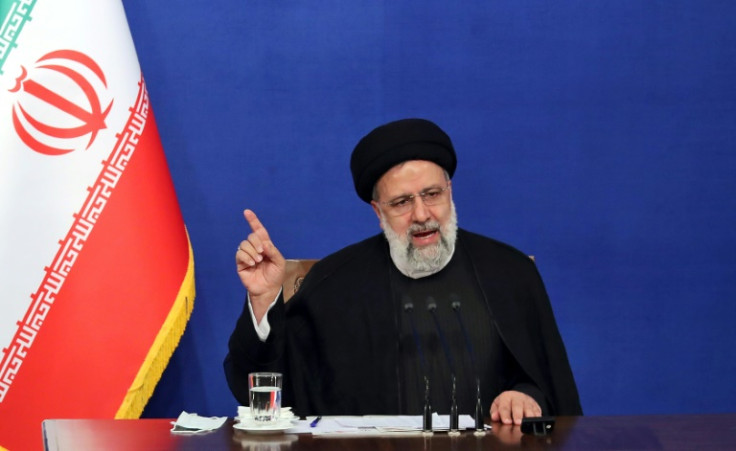Axis Of Evil? Alliance With Russia, China To Oppose Unipolar World Order, Says Iran
KEY POINTS
- Iran has indicated that it's willing to pursue stronger relations with China and Russia to oppose the U.S.-led world order
- Tehran expects the full membership of the SCO will enable it to boost its economy and regional standing
Amid speculation that the three countries are teaming up in the face of the U.S.-led Western sanctions, Iranian President Ebrahim Raisi has said that cooperation between Iran, Russia and China will help create a new power to oppose the unipolar world order that has violated legitimate rights of many nations.
"People around the world have bad memories of the era which has come to an end. It was a time of hegemony, unipolar world order and violations of the legitimate rights of many nations," the Iranian President said Wednesday in an interview with China's CGTN broadcaster.
According to him, "a new era will be marked by the establishment of a multipolar world order." Cooperation between Iran, Russia, China, the Shanghai Cooperation Organization (SCO), the Eurasian Economic Union (EAEU) and the Economic Cooperation Organization (ECO) "may lead to the creation of a new power".
Speaking about the benefits of joining the China-led Shanghai Cooperation Organization (SCO), a central Asian security body, President Raisi said: "SCO membership creates good opportunities for the development of ties between Iran and other members of the organization."
Last month, during the Samarkand Summit of the SCO, Iran signed a Memorandum of Obligations to become a permanent member, following which the Iranian president signed a bill to that effect.
Iran, which has held observer status in the rapidly expanding SCO, expects full membership of the organization to boost its economy and regional standing. Tehran has called on members of the body to help it form a mechanism to avert sanctions imposed by the West over its disputed nuclear program.
During a meeting with his Russian counterpart, Vladimir Putin, on the sidelines of the SCO summit in Samarkand, President Raisi said: "The relationship between countries that are sanctioned by the US, such as Iran, Russia or other countries, can overcome many problems and issues and make them stronger."
"The Americans think whichever country they impose sanctions on, it will be stopped, their perception is a wrong one," Raisi said.
Faced with increasing isolation and economic sanctions, Iran has been looking east for strategic partners. Tehran has found natural allies: in Moscow, facing its own share of global sanctions following the invasion of Ukraine, and in Beijing, facing Western condemnation for its aggressive military posturing against Taiwan and in the South China Sea.
By joining the SCO, Tehran has indicated that it's willing to pursue stronger relations with Beijing and Moscow, the organization's two most powerful members, including military ties. Meanwhile, the inclusion of Iran as a member of the group gives the regional body an opportunity to expand its reach and offer substantial heft in dealing with pressure from the West.
The tension between Iran and the West has been high since 2018 when then-President Donald Trump unilaterally withdrew from the landmark nuclear deal, which would've ensured the lifting of sanctions on Tehran in exchange for limits on its uranium enrichment. Efforts to revive the deal remain stalled with an increased showdown between the two countries.

© Copyright IBTimes 2024. All rights reserved.





















